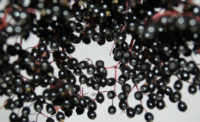Sustainability is undoubtedly a buzzword in this age, but the line between echoing support for environmentalism and ensuring that ingredients do no harm is not yet defined, especially in the palm oil industry.
In 2004, the Roundtable on Sustainable Palm Oil answered a call to action against environmental destruction caused by the palm oil industry. The inexpensiveness and high yield of oil palms encouraged clearing land to dedicate to palm oil production, and with the modern outcry for greater transparency in sustainability practices, these damaging techniques are starting to be overthrown throughout the supply chain.
Cargill, Inc., whose palm oil operations include two plantations and supporting more than 10,000 smallholder farmers in Indonesia, paved the way for companies committing to sustainability when it joined RSPO in 2004; its farmers in South Sumatra, Indonesia, were the first in the world to receive RSPO certification for smallholder farmers.
Yet since 2004, the global demand for palm oil has nearly doubled, putting forests, peat lands, native species and air quality at an ever-increasing risk unless companies involved in the industry take stronger positions to ensure they minimize potential damage.
As a response to the growing importance of palm oil sustainability, Cargill announced a new policy in July that heightened and clarified its commitments toward the environment and local communities; the policy emphasized traceability, transparency and non-exploitation of locals and limited the areas where palm oil could be developed.
These added commitments make a statement that the RSPO standards are not enough to ensure palm oil is coming from sustainable and ethical sources.
“Our policy is intended to enhance the efforts of the RSPO,” says Colin Lee, director of corporate affairs for Cargill Tropical Palm. “We continue to support the RSPO in its role to lead and drive the industry towards a more responsible and sustainable palm oil supply chain.”
As a leader in the palm oil industry, Cargill tries to ensure not only its own products are sustainable, but those of other companies as well. It recently worked with a group of five other key industry stakeholders, including Sime Darby Plantation, Musim Mas Group, Kuala Lumpur Kepong Berhad, IOI Group Corporation Berhad and Asian Agri/APICAL, to develop the Sustainable Palm Oil Manifesto, which further added onto the existing RSPO guidelines.
However, environmental groups such as Greenpeace International and the Rainforest Action Network have criticized the manifesto for not being aggressive enough in combating deforestation, saying that the companies focus too much on research into sustainable practices and less on action toward actually producing products that can truly be called sustainable.
Cargill at least seems to be taking steps in the right direction, even if they are not as quick as activists may like. In the past month, the company partnered with The Forest Trust (TFT), an NGO that aids in the conservation of forests, and signed the U.N. Declaration on Forests, which has an end goal of reversing deforestation. It may be a long process, but it is one that the industry is clamoring for.
Customers are clamoring for change as well.
“We see a growing interest from our customers in sustainable palm oil as part of an overall heightened awareness regarding responsibility to the environment,” says Mike Landis, principal scientist in research and development at Cargill.
Challenges to Cargill in ensuring its products do not contribute to deforestation are due, in large part, to the many different actors involved in the process of growing, producing, trading and selling palm oil.
“The palm oil supply chain is highly complex, mainly due to the sheer number of stakeholders, from growers and refiners, to traders, food companies and consumers,” Lee explains. “That complexity is probably the biggest challenge to aligning any supply chain.”
British organization GreenPalm attempts to transcend the middle sections of the supply chain with its program of trading certificates for sustainable palm oil.
In the GreenPalm program, RSPO-certified palm oil producers receive a GreenPalm certificate for each metric ton of palm oil they sustainably produce. Other manufacturers or retailers can buy these certificates as an act of support for sustainability in the industry and to show consumers they are involved in sustainable practices.
Rather than denoting actual use of fully sustainable palm oil in a product, the certificate is a representation, GreenPalm general manager Bob Norman says. Because of this, not everyone believes GreenPalm certificates are the best path to take in practicing sustainability.
|
Saving the planet, saving ourselves With the health of the environment a growing interest to companies and consumers, what about our own health? Nutritional concerns remain a factor in consumption, but luckily the very nature of the confectionery industry shields it from upheaval. “Typically, confectionery products represent a low-cost indulgence where healthfulness is not a key driver of consumption,” says Mike Landis, principal scientist in research and development at Cargill, Inc. The industry’s use of oils is also mostly out of harms’ way, at least compared to the baking industry, which uses more partially hydrogenated oils than does its candy counterpart. Consumers are also less concerned about fat in general, Landis says. “Carbohydrates, and in particular sugar, seem to be taking the forefront as the ‘villain of the day.’” Nonetheless, confectionery companies do still place an importance on health and want to see improvements in the fats and oils they use. Cargill technical service manager Lynne Morehart explains how the company has been working on technology behind blending or substituting fats with oils, including palm oil, while upholding the product’s function, a difficult task in confections. Improving health parameters, be it in fats and oils or in consumers, has and will be a work in progress. |
“NGOs aren’t a big fan of the GreenPalm option because it’s not tangible,” Norman adds.
Even if a redeemed GreenPalm certificate doesn’t tell the whole story, could it be the best interim choice?
“Ideally we won’t need it because there will be standards,” Norman admits. But for now, he affirms that a combination of all three routes of the palm oil supply chain — identity-preserved segregation, mass balance and the GreenPalm program — is the best bet at this time until sustainable practices are further developed and widespread.
Many environmentalists and concerned consumers prefer the segregated system, in which certified palm oil is kept separate from conventional palm oil through the transport and refinery process. Though this may sound smart, Norman is more pessimistic.
“The worry is it could create a niche product,” he argues, explaining that providing separate transport could also disadvantage inland growers who are not near a load port.
Sustainability will have to become a more attractive option to more companies, big and small. “Most big corporations involved are RSPO members,” Norman says. “We’re now approaching the next tier of growers, independent growers.”
As the demand for palm oil climbs, so has the demand for certified sustainable palm oil, and GreenPalm helps with that. “There’s more of an appetite to be involved,” Norman says. “More retailers are wanting to do the right thing.”
But does “the right thing” mean supporting sustainable palm oil through certificates, or do companies need to go the extra mile in using that sustainable palm oil in their products? Some manufacturers are taking the latter stance and moving from just a supporting claim to actually using sustainable palm oil themselves.
Like Cargill, The Hershey Co. also recently updated its policy on its use of sustainable palm oil. In December, the chocolate company had committed to sourcing 100 percent traceable and responsible palm oil by the end of 2014, aiming to work with suppliers that do not promote deforestation or the destruction of natural habitats.
Hershey also partnered with TFT, which will help the company review its palm oil supply chain.
TFT director Robin Barr notes Hershey’s actions toward identifying and using sustainable palm oil are not yet the norm. “It’s also essential for transformation in the industry,” she says.
Hershey continued to take a stand for responsible sourcing in its updated policy announced in September. Building on its previous commitments, Hershey also made specific points to honor workers’ rights and respect the local communities.
Frank Day, v.p. of global commodities at Hershey, describes the new policy as a “roadmap for how we will go beyond RSPO-certified palm oil.” By recognizing that current industry standards are not strong enough, he sees Hershey with the ability to lead other global food companies in the quest for sustainable palm oil.
Other candy giant Mars Inc. has a policy with similar goals and has also partnered with TFT. The company emphasized increased traceability in its recent updated commitment; Mars currently uses palm oil that comes through the mass balance system, in which RSPO-certified oil is mixed with conventional oil during transportation, refinery and packaging.
As of August 31, Mars could trace 57 percent of its palm oil to a known mill, a number it hopes to see reach 100 by the end of the year.
Cargill notes this is only one step in the process toward palm oil operations ending their negative effect on the environment. “Traceability is only a means to an end, allowing us to identify and get to the root of environmental and social issues,” Lee says.
By engaging with these issues along each link in the chain, Lee hopes Cargill can succeed in “eliminating brand risk for our customers.”
With Cargill, Hershey, Mars and other large companies pledging to keep a more watchful eye on their palm oil supply chains, sustainable palm oil could gradually move from being a “niche” to a global reality.








